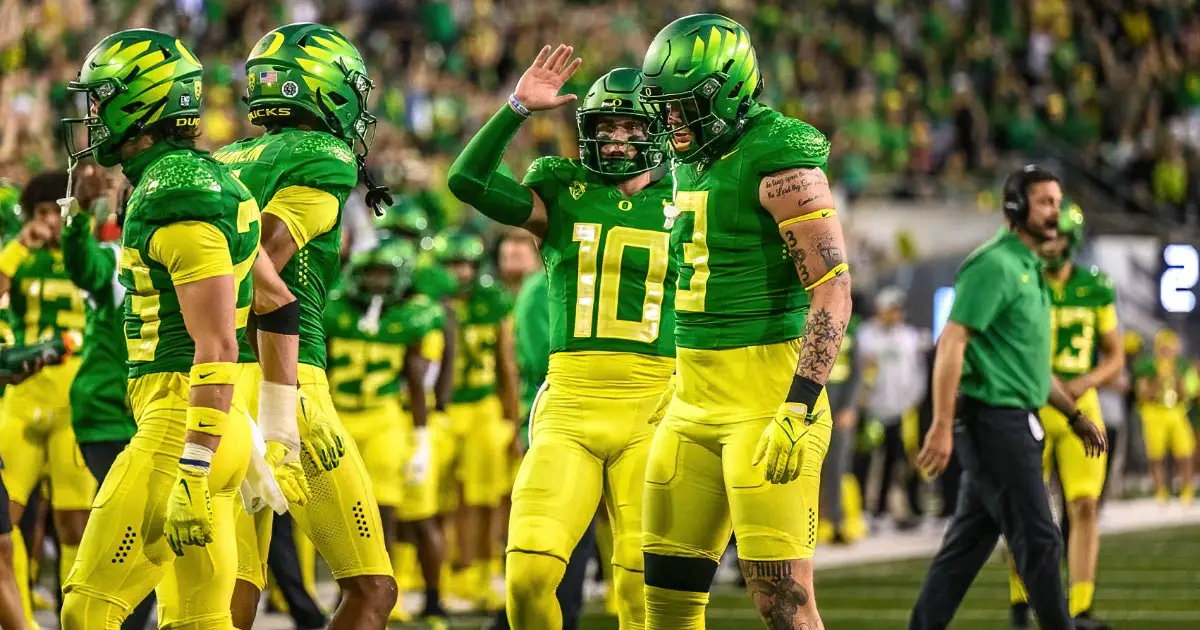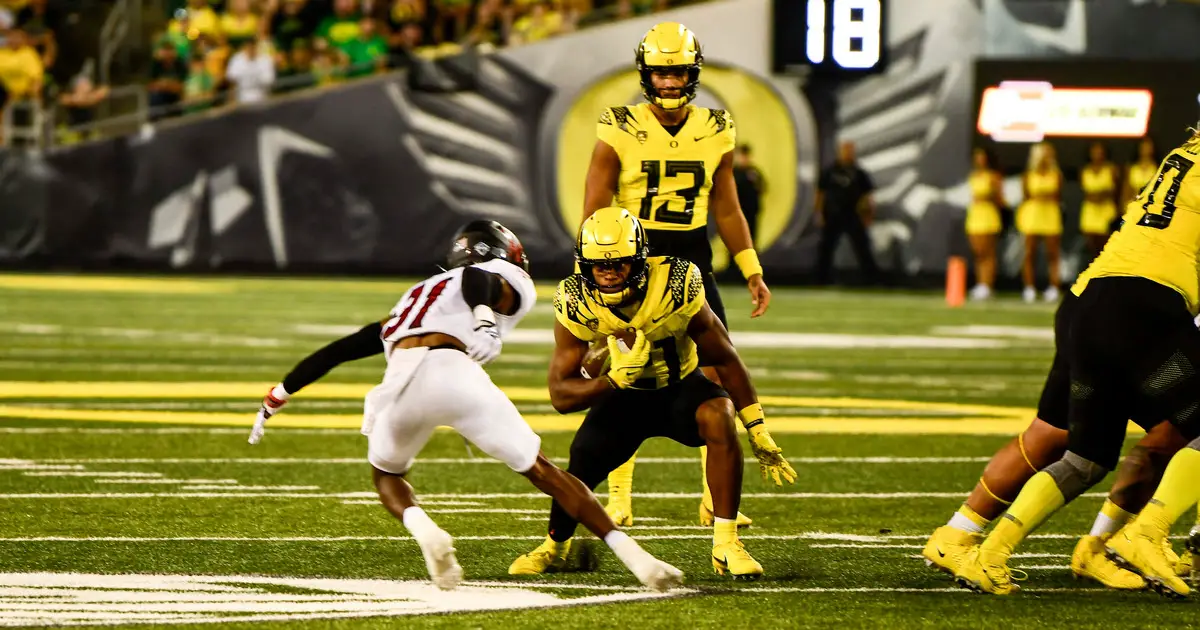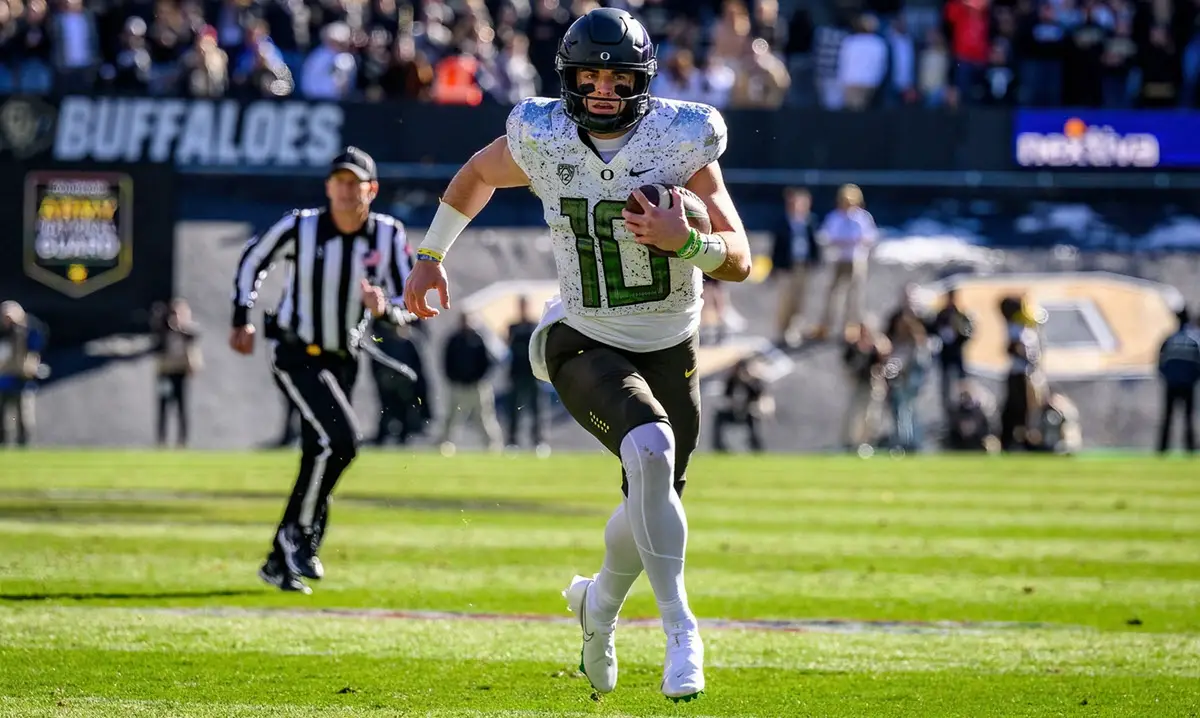Just how many scholarship quarterbacks can a college football roster sustain? This is the big question in this day and age of the transfer portal and NIL. Any starting quarterback is going require a chunk of NIL money (that’s a given, though how much will vary depending on the player and school). More NIL opportunities will also come with being a starter rather than riding the bench. This leads us to the transfer portal, as any quarterback riding the bench is going to want a chance to start somewhere.
There is also the case of starting quarterbacks looking for a new place to start. Whether that is a group of five quarterback looking for a shot at power five or a quarterback such as Bo Nix for Oregon who is just looking for a better fit.
Competition at quarterback has never been greater. And for many, it may look like a chance for some to transfer out and find new homes where they can be the starter. The reality is that there are the same number of starting spots as in the pre-portal era, but the competition has ramped up because a quarterback is no longer competing against those below him on the roster — he is always looking over his shoulder at a potential transfer who may swoop in and take the starting spot.
Which leads us back to the question, how many quarterbacks can a team sustain? It used to be that a team could have four scholarship quarterbacks.
Now that answer is really two. At most, three.
One is the starter, and another as a backup is a given. Being the backup still comes with the chance to play, and potentially being heir apparent to the starting job next year — but even that isn’t a given in this day and age. Three is the number I fully expect for spring practice and into the spring game. This is because a team will have its starter, backup, and potentially a new freshman enrollee. They will battle it out during the spring, which will probably result in the starter still being the starter (though there is always the potential for an upset), and then the backup and the new freshman will battle it out for the second spot.

Bo Nix’s return will give Oregon the best chance to win next season, but it comes at the cost of pushing quarterback recruits away.
This leads us to the post-spring transfer portal window. This is the time that will lead to the second rush of players to the transfer portal, and this is the time when a team might see its backup quarterback depart, unless of course he won the starting job. And if the starter lost his job, it is likely he’ll hit the portal.
It is unlikely that a freshman will leave the team after spring, assuming he attended spring camp. Many will have NIL deals in place that they won’t be able to abandon after such a short period of time, and besides, they have only just started to learn the college game and their coaches are going to continue to give them positive encouragement.
But a highly-ranked freshman is going to want to feel in the thick of the starting job battle, which may or may not be the case. There is a reason why transfer quarterbacks are in such high demand and why holding onto a starting quarterback for an extra year is so valuable. They know how to play the game at a high level and they are going to give the team the best shot at winning as many games as possible — and even potentially reaching the playoff, which has become the only goal for many teams.
What does this all mean for Oregon?
Bo Nix has announced he is returning, which is a huge get for Oregon, even with the loss five-star QB Dante Moore. Nix is going to give Oregon the best chance to make a run at the College Football Playoff next year. The Ducks were so close this year, and if it wasn’t for Nix’s injury in what was a bad play call, Oregon could have won the Pac-12 and made the playoff. Sure, the defense has been problematic this past year, but Lanning is taking massive steps to address that problem as well.
With Nix returning, Ty Thompson already knows he is going to be the back-up for the Ducks — at least for the moment. Right now this also means that Oregon only has two scholarship quarterbacks in Nix and Thompson, though as today is the beginning of the early signing period, that may change.

Ty Thompson is, for the time being, Oregon’s backup quarterback by default.
The Ducks are pursuing some additional quarterback targets, so we will have to wait and see if Oregon is able to get a third quarterback on scholarship. It would certainly make coaches and fans alike feel more comfortable in having more depth at the most critical position on the field, but this is the new day and age of the transfer portal and NIL where every player wants to get in on the NIL market (to varying degrees) and to really get paid, players need to play. For top prospects, that means going to schools where they will have an opportunity to play right away, and if they don’t play right away there is always the transfer portal.
Simply put, at this time, two scholarship quarterbacks is probably the most realistic expectation for most top-tier teams. There might be a few years where three scholarships quarterbacks is a possibility but that would only be for a year before the portal opens and at least one or two leave and this isn’t just because players are fickle. Coaches are taking harder looks than ever at their rosters and are pushing players towards the portal because those players aren’t good enough to see the field and if they stay they are only going to take up a scholarship for a player who could make a bigger impact.
Have a little faith in this coaching staff, Duck fans; quarterback recruiting, and recruiting in general, has changed dramatically over the last three years and everyone is still learning. The old template for what a team should look like no longer applies, and that means having four or even five quarterbacks on scholarship is just not even remotely realistic anymore. These coaches are going to put together a team to compete next season.
David Marsh
Portland, Oregon
Top Photo By Craig Strobeck

Natalie Liebhaber, the FishDuck.com Volunteer Editor for this article, works in the medical technology industry in SLC, Utah.
Related Articles:

David Marsh is a high school social studies teacher in Portland, Oregon. As a teacher he is known for telling puns to his students who sometimes laugh out of sympathy, and being both eccentric about history and the Ducks.
David graduated from the University of Oregon in 2012 with Majors in: Medieval Studies, Religious Studies, and Geography. David began following Ducks Football after being in a car accident in 2012; finding football something new and exciting to learn about during this difficult time in his life. Now, he cannot see life without Oregon football.


